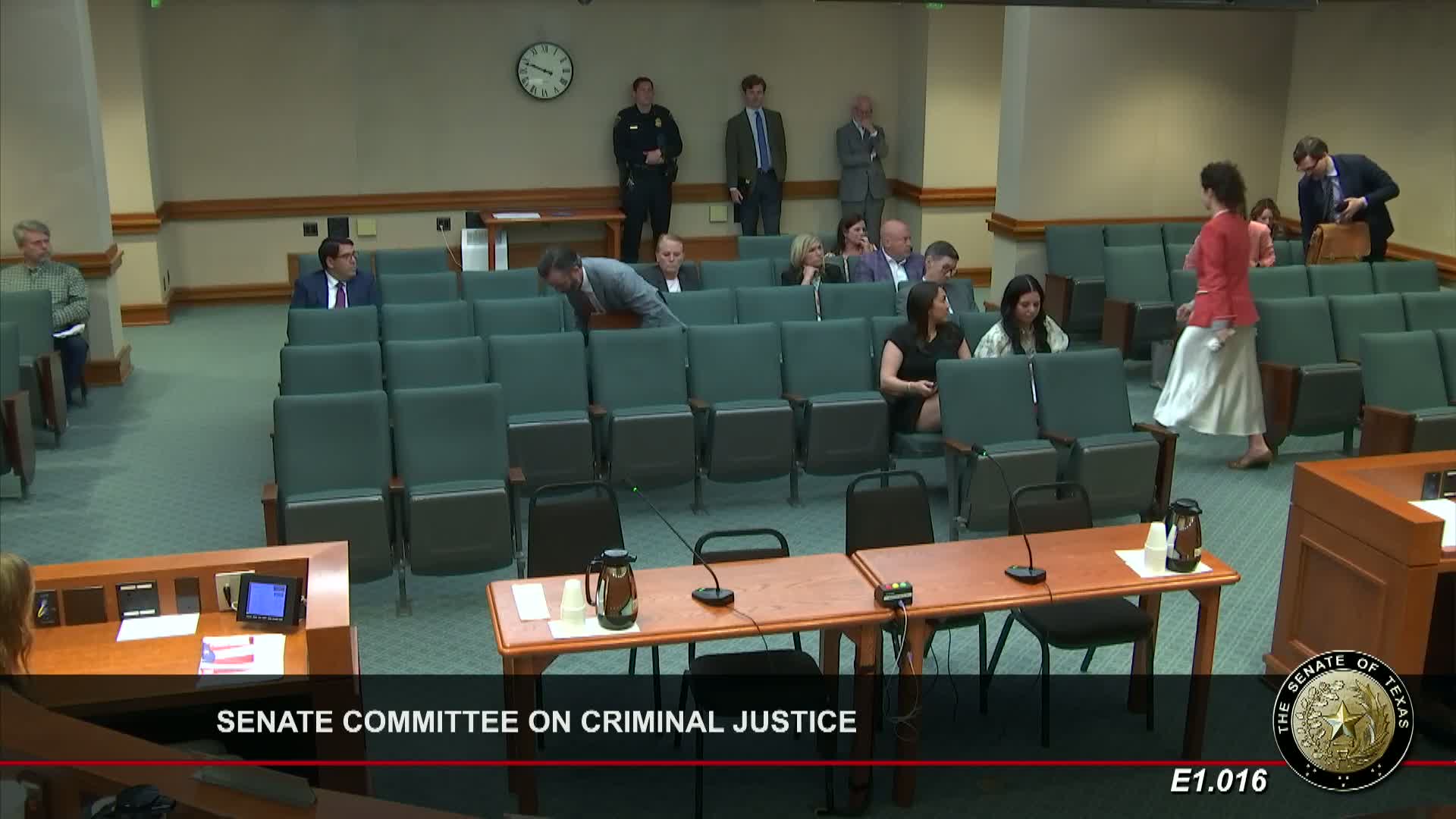Article not found
This article is no longer available. But don't worry—we've gathered other articles that discuss the same topic.
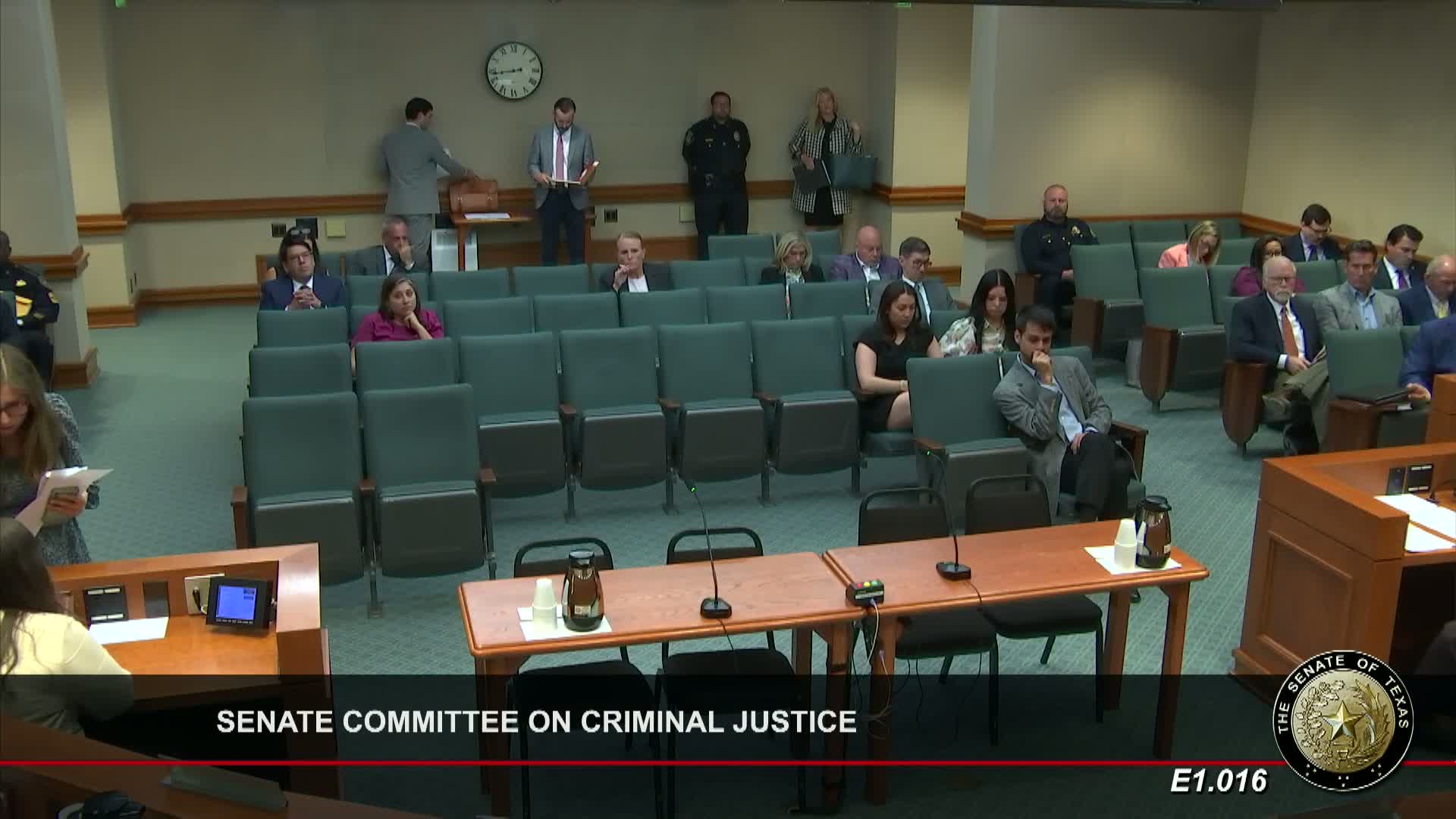
Committee backs bill letting law enforcement post unclaimed property notices online
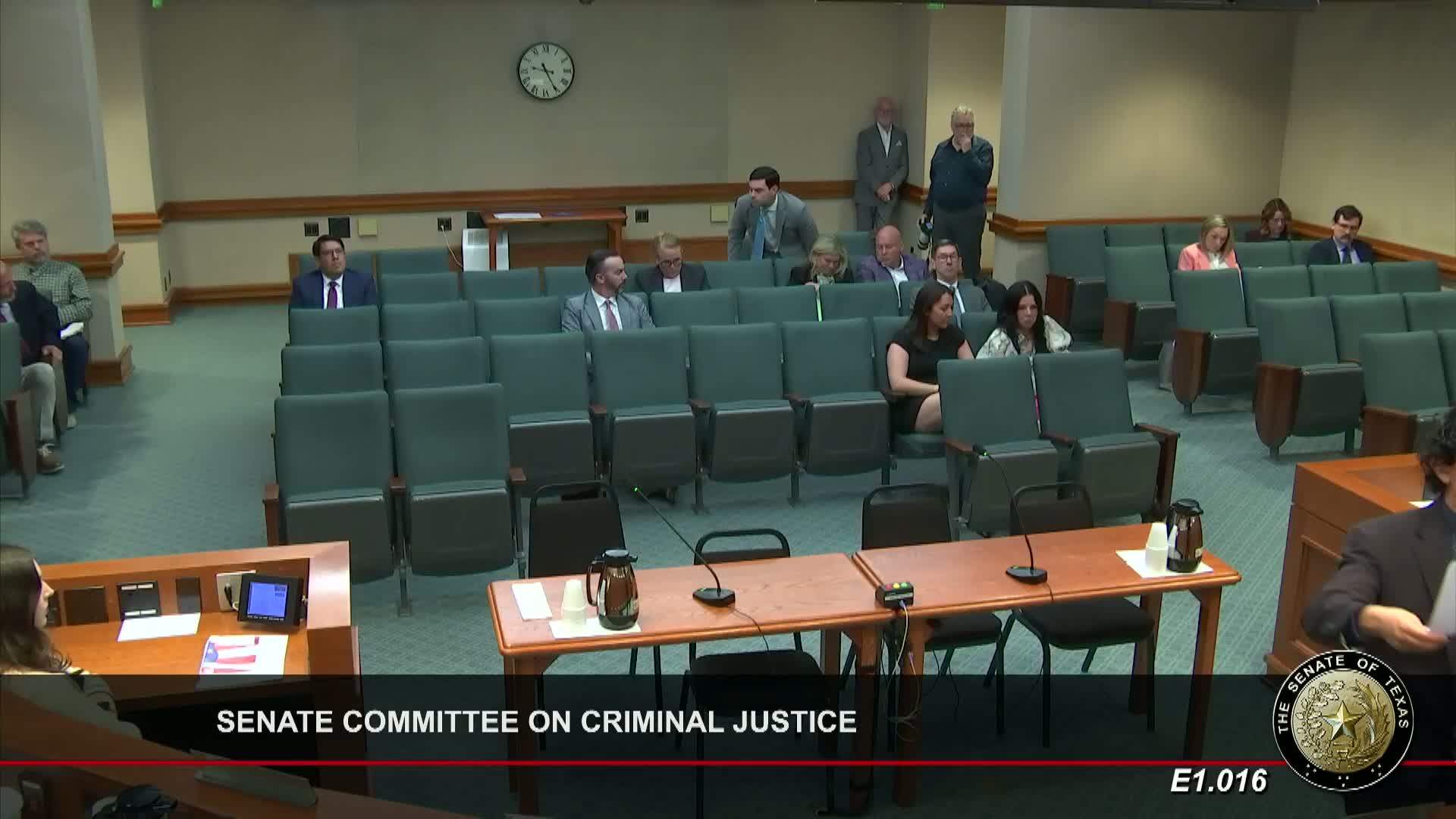
Senate committee backs bill to require sex‑offender registration for invasive visual recordings
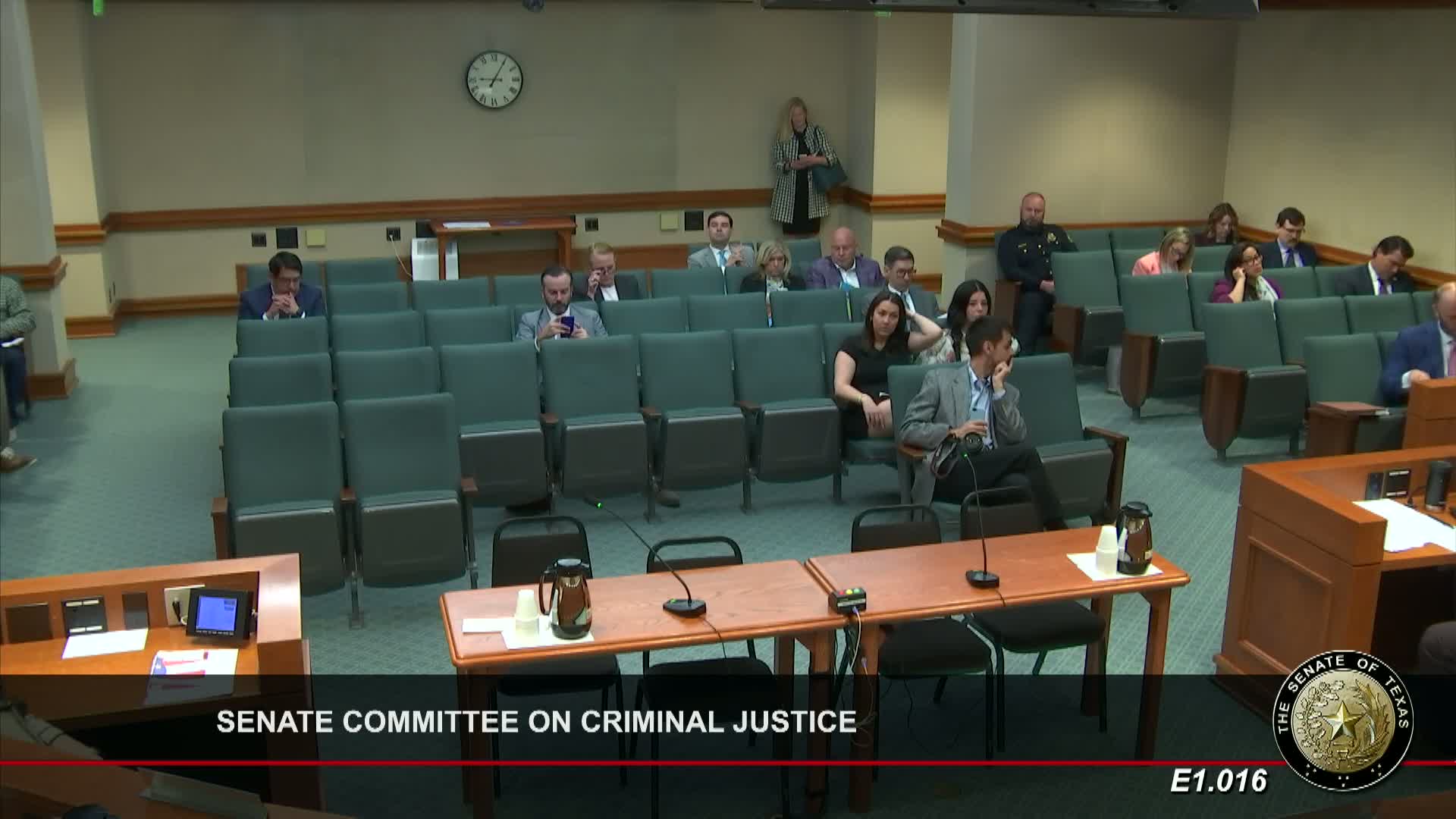
Bill would let attorney general prosecute human‑trafficking cases if local prosecutors do not act in six months
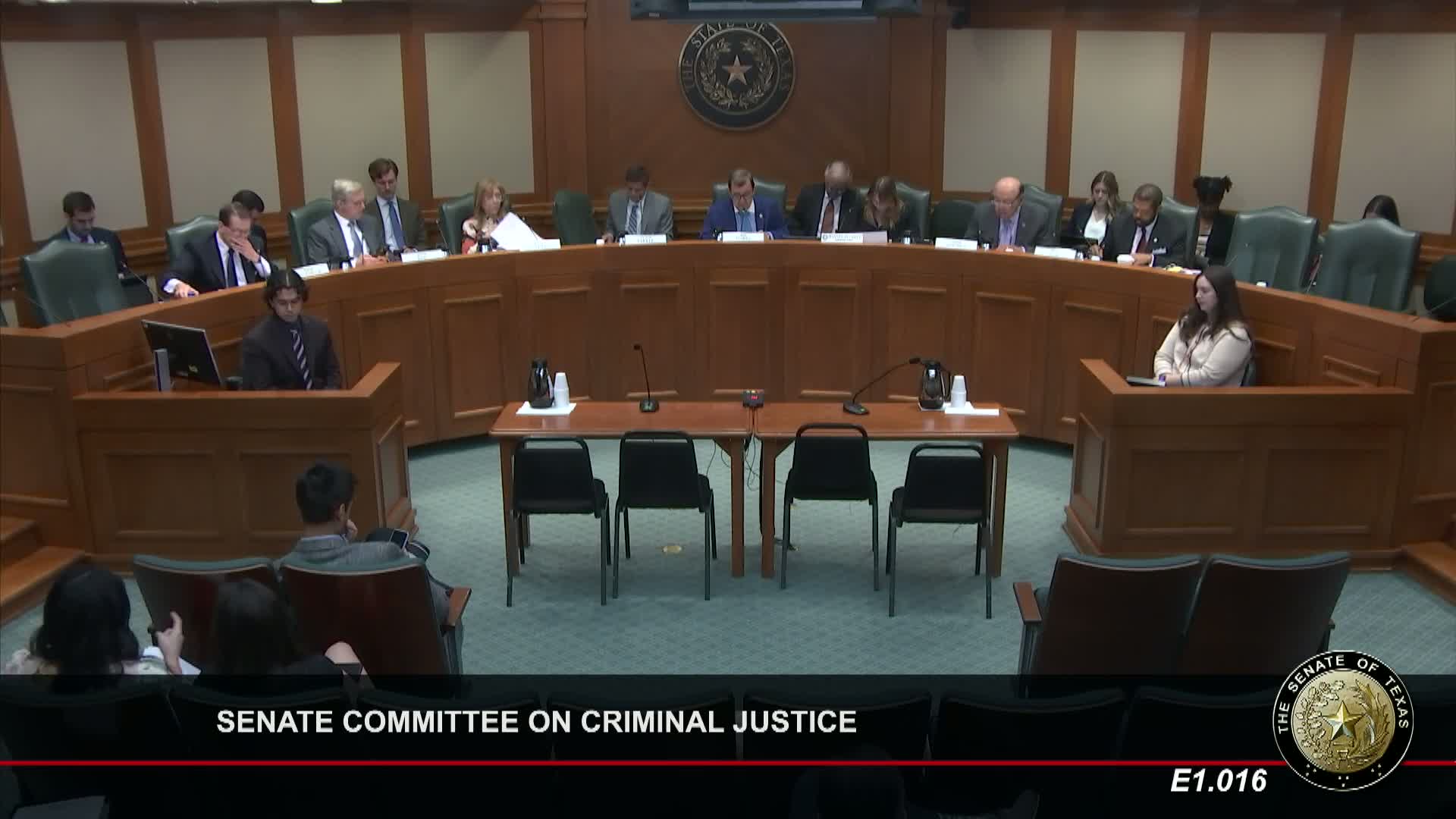
Senate committee clears broad human‑trafficking omnibus bill expanding penalties and victim protections
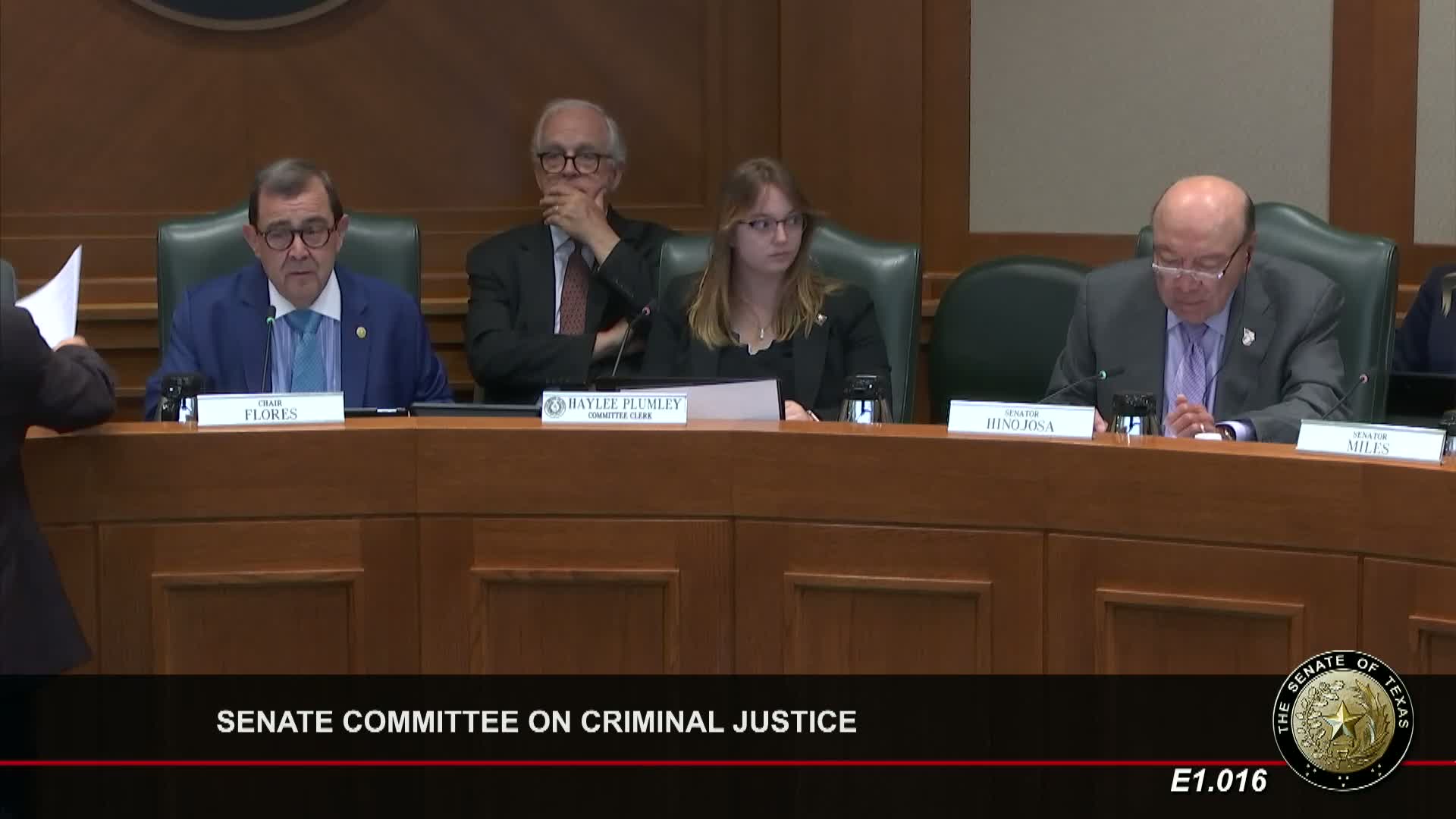
Senate committee advances Uvalde Strong Act to tighten school active‑shooter preparedness
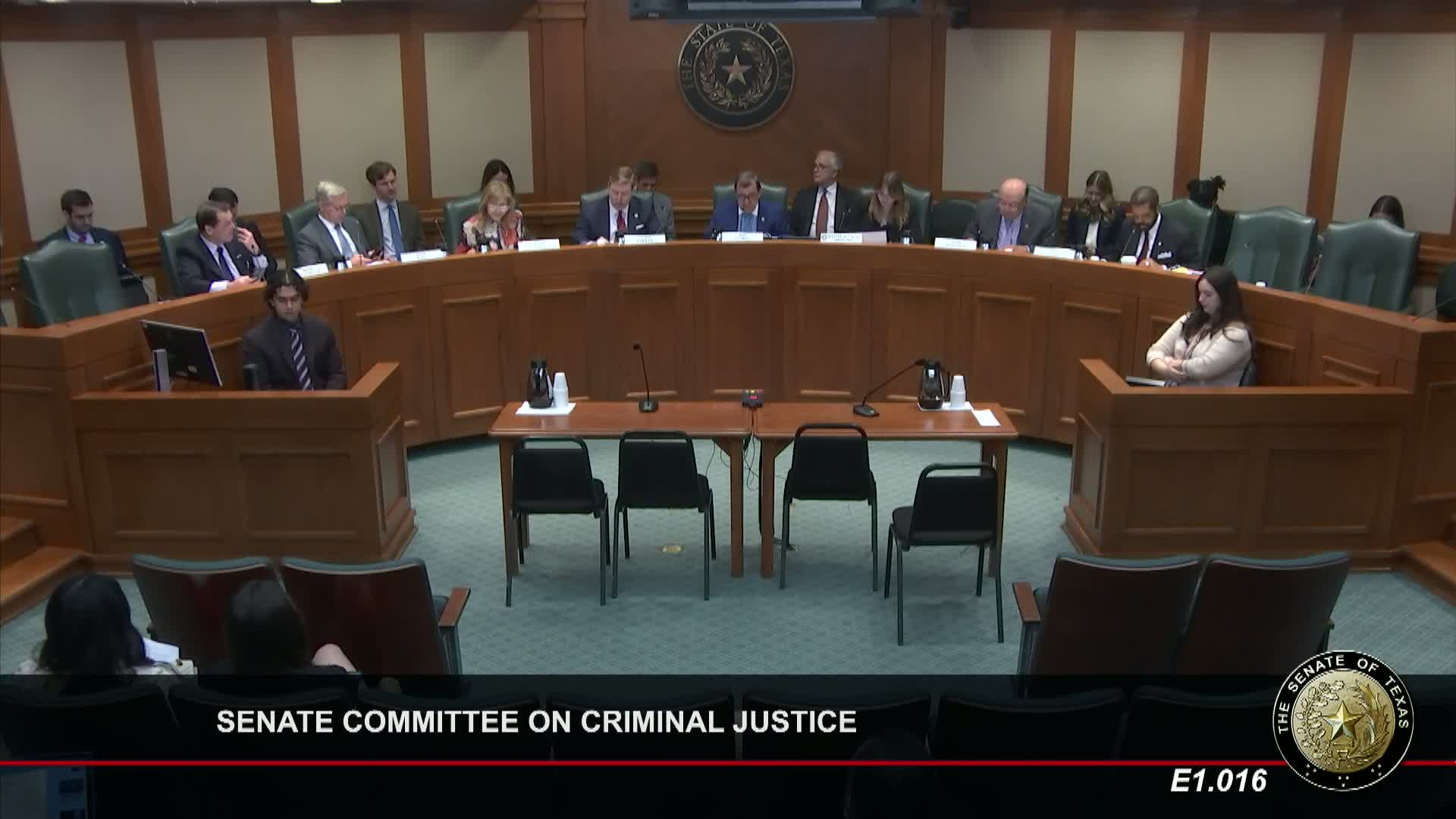
Committee approves creation of organized oil‑field theft unit at DPS
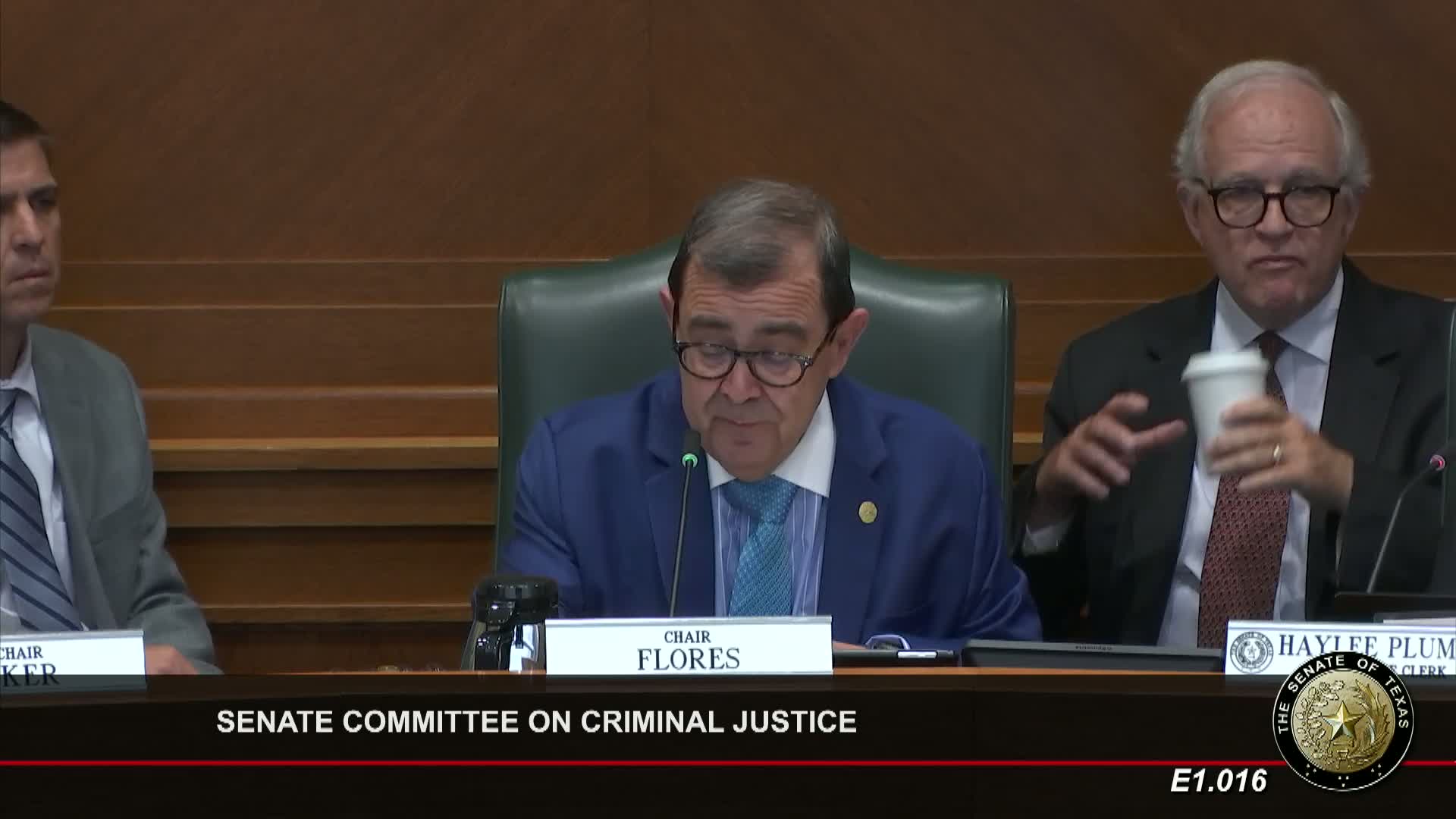
Committee clears bill criminalizing disruptive interference with virtual public meetings
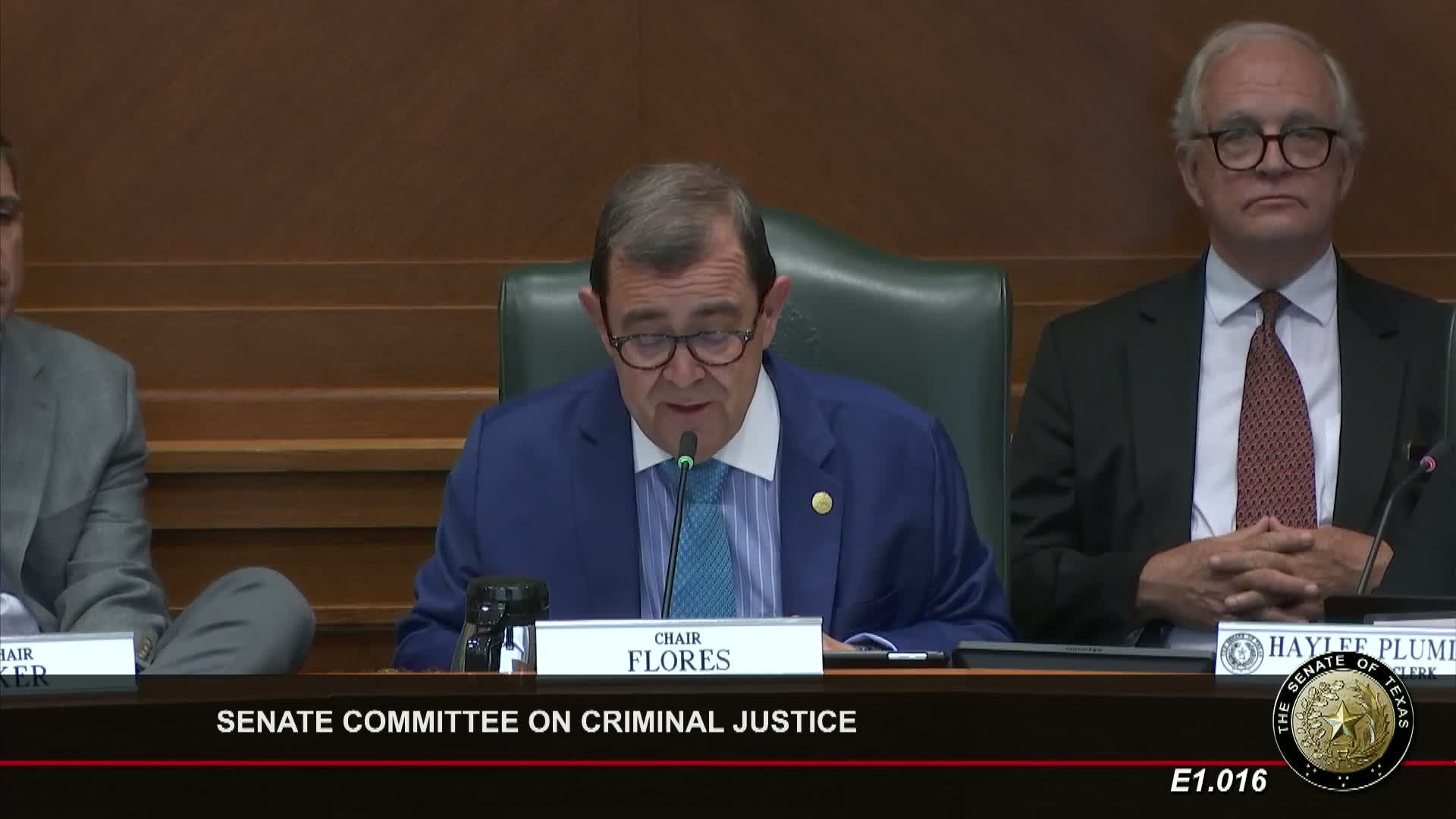
Committee advances bill to expand protective orders for burglary victims
